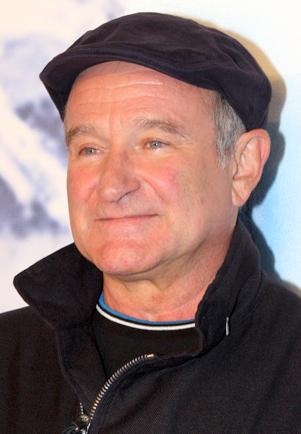Breaking
‘It lays in wait’ — Robin Williams’ lifelong fight
NEW YORK — Addiction seemed to stalk Robin Williams, tempting him when he was weak and taunting him when he least expected it.
“It waits,” he told “Good Morning America” in 2006. “It lays in wait for the time when you think, `It’s fine now, I’m OK.’ Then, the next thing you know, it’s not OK. Then you realize, `Where am I? I didn’t realize I was in Cleveland.'”
Williams, the comic whirlwind known for his hilarious stream-of-consciousness ramblings, was found dead Monday after he hanged himself in his San Francisco Bay Area home. He was 63.
On film, he played everything from a genie to a psychiatrist. In life, he battled periodic bouts of substance abuse and depression, opening up about them to journalists with self-deprecating wit and making his struggles fuel for his comedy.
“Cocaine for me was a place to hide. Most people get hyper on coke. It slowed me down,” he told People in 1988.
One of his first wake-up calls was in 1982 when fellow comedian John Belushi died of a drug overdose. Williams briefly partied with the “Saturday Night Live” star the night he died and his friend’s passing coupled with impending fatherhood forced the comedian to quit cocaine and alcohol cold turkey.
“The Belushi tragedy was frightening,” Williams told People. “His death scared a whole group of show business people. It caused a big exodus from drugs.
And for me, there was the baby coming. I knew I couldn’t be a father and live that sort of life.”
Sobriety lasted 20 years. Then the taunts became overwhelming again.
The Oscar winner spent several weeks in the Canadian city of Winnipeg in the spring of 2004 filming “The Big White,” playing an Alaskan travel agent nearing bankruptcy. He told The Guardian in 2010 he felt lonely and overworked.
“I was in a small town where it’s not the edge of the world, but you can see it from there, and then I thought: drinking. I just thought, `Hey, maybe drinking will help.’ Because I felt alone and afraid,” he told the newspaper. “And you think, oh, this will ease the fear. And it doesn’t.”
He told Parade magazine in 2013 that his relapse after two decades of sobriety was frighteningly simple:
“One day I walked into a store and saw a little bottle of Jack Daniel’s. And then that voice – I call it the `lower power’ – goes, `Hey. Just a taste. Just one.’ I drank it, and there was that brief moment of, `Oh, I’m OK!’ But it escalated so quickly. Within a week I was buying so many bottles I sounded like a wind chime walking down the street.”
A family intervention – “It was not an intervention so much as an ultimatum,” he told Parade – persuaded him to seek alcohol abuse treatment at Oregon’s Hazelden Springbrook center in 2006.
He later told The New York Times that he hadn’t confronted the underlying issues at the root of his addiction.
“There was still, in the background, this voice, like, `Psst,'” he told the newspaper. “So when I relapsed, I went back hard. The one thing I hadn’t dealt with was, how honest do you want to live?”
Williams continued his recovery by attending weekly AA meetings. But his second marriage, to film producer Marsha Garces, ended in 2008, largely because of his drinking, even though by then he was sober.
“You know, I was shameful, and you do stuff that causes disgust, and that’s hard to recover from,” he said. “You can say, `I forgive you’ and all that stuff, but it’s not the same as recovering from it.”
Recently, a new bout of depression prompted Williams to enter rehab. His publicist, Mara Buxbaum, said at the time that he made the decision because he needed to recharge after working for 18 months straight.
On Monday, the struggle finally ended.






















